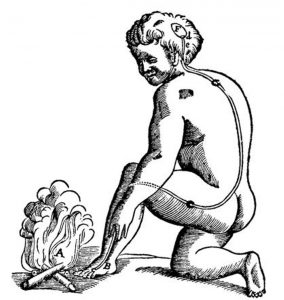La Mettrie extends the Cartesian conception of animal-machines through the affirmation of a “man-machine” (1748). Nevertheless, such an extension of the mechanical model of comprehension, as effected by La Mettrie, constitutes a profoundly anti-Cartesian gesture: in this way, he challenges the Cartesian dualism of extended substance and thinking substance. Likewise, the concept of artificial intelligence extends the Cartesian mechanism to thought. It was Alan Turing who explored this idea of a test to find out whether an automaton could imitate human intelligence. One of Descartes’ criteria was the impossibility for an automaton to simulate our thoughts by speech. The Turing test is an artificial intelligence test proposal based on a machine’s ability to mimic human conversation.
Recent studies in biology
Recent studies in biology on the logical capacities of animals have shown, in contrast to the ideas of Descartes, that they have a sense of causality. Thus, chimpanzees know how to reason inferentially by exclusion, know the elementary rules of physics (idea of weight on a scale …). While philosophers and psychologists influenced by Descartes believed that animals can easily be conditioned through an arbitrary stimulus (Pavlov’s dog), experiments in great apes show that they prefer a causal approach. It has also now been demonstrated that the functioning of the cells which constitute a living being is probabilistic, which strongly contradicts the determinism of the animal-machine.













Leave a Reply